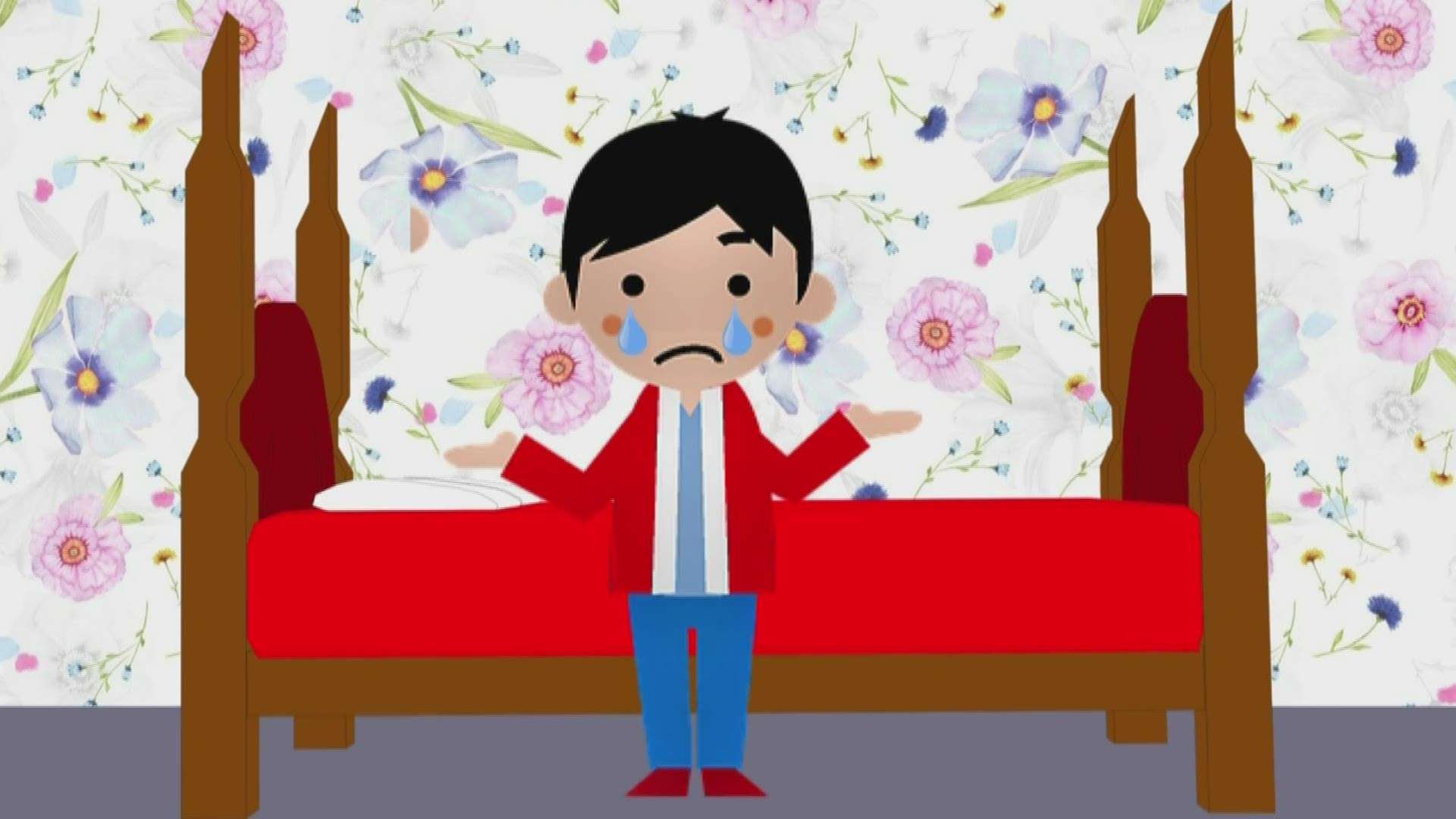Every couple has their problems, and you’ve probably dealt with these issues before.
The top relationship issues couples face are kids, sex, in-laws and money according to relationship expert Dr. Kristina Gordon.
They can lead to a lot of frustration, disappointment and anger, but there are ways to work through them.
Kids
Having children can be one of the greatest life experiences, but they can also put a huge strain on a relationship.
From babies to college students, there are different complications with each stage.
“It is so easy to get caught up with little kids, or even older kids actually, with teenagers you have to drive them everywhere," Gordon said.
You need to prioritize your marriage and make an effort to stay connected no matter what stage they're at, Gordon said. She recommended having reasonable expectations.
Expectations often grow out of the families we grow up in, according to Gordon. She said these expectations tend to be based on gender.
"If we go just on autopilot, on our old views or old experiences and what we saw in our homes and don't talk about it... that can cause some problems," Gordon said.
Couples need to find time despite the craziness involved with raising children to make time for themselves, she said. It can be difficult to put aside time for your relationship, but it's important.


Sex
Intimacy can create a division between couples. There can be many reasons why one partner wants it and the other does not. Sometimes, it's because of kids.
“I think a lot of times for women, particularly in the young years, you have kids hanging off of you. You don’t want anyone touching you anymore," Gordon said.
This can leave the other partner feeling rejected and have a big impact.
“There’s that newborn phase where you aren’t sleeping very much and you’re not eating very well that is very hard. That is actually one of the toughest times for couples,” Gordon said.
67% of new parents experience a sudden and big drop in couple satisfaction in the first three years of their child's life, according to the Gottman Institute.
Good physical affection can make the divide less painful, Gordon said.
“Just a little bit of cuddling or touching or flirting just something that expresses I am still here," Gordon said.
In-laws
They are often the closest people in our lives, but having them involved means dealing with many opinions and demands.
Three out of four couples have significant conflict with their in-laws, according to a Cambridge University psychologist.
Setting boundaries around you as a couple can help, Gordon said. Couples need to determine where they draw the line between their relationship and external family members, she said.
"Negotiating these boundaries can be really unspoken. It then causes a lot of problems," Gordon said.
People need to step back, look at the situation, and calmly clarify what they want, according to Gordon.
"Too often we don't do that. We don't think about it ahead of time. We don't think about what we want. We don't express what we want. It usually comes out in fights, when people explode, and it doesn't go well," Gordon said.
Money
It's the number one issue for a lot of couples, according to Gordon.
In many relationships, there's often a "spender" and a "saver", Gordon said. A spender likes to spend money however they want and have fun. The saver wants to stockpile money away for the future or an emergency.
Gordon said there's value in both sides, and the spender and saver need to compromise. They also should understand the history behind the person's spending habits, she said.
“Money isn’t just money. There’s meaning underneath money. See if you can take the time to understand why it’s so important to each other. That can be really helpful in untangling all these fights," Gordon said.
She said the spender might have felt deprived as a child and wants to enjoy life. The saver might have grown up in an environment without a lot, and they might be afraid of an emergency.
"If they can each understand each other, often that can help people negotiate those differences in a much more compassionate way with each other and that becomes more effective," Gordon said.
The spender and the saver might never come to a common ground, but they can value each other's reasoning and change their behavior, she said.






